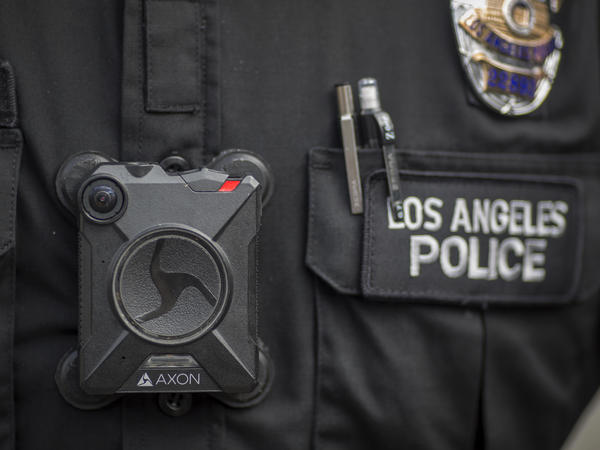
The largest supplier of law enforcement body cameras in the U.S. is exploring pairing its cameras with new AI capabilities — including real-time face recognition.
Axon, formerly known as Taser International, sparked controversy late last month when it announced the creation of an ethics board to examine the implications of coupling artificial intelligence with its line of police products.
A coalition of civil rights groups, including the NAACP, ACLU and the Electronic Frontier Foundation, immediately responded to the announcement with a public letter urging Axon to exercise caution in deploying AI technologies. The coalition wrote that American law enforcement has “a documented history of racial discrimination,” claiming, “because Axon’s products are marketed and sold to law enforcement, they sometimes make these problems worse.”
Axon leads the body camera industry, relying on the recognition of its Taser brand to secure contracts with police forces from Atlanta to Albuquerque. And it just bought out its largest competitor, Vievu, less than two weeks ago.
But as cameras get cheaper and the market gets more competitive, Axon is turning to a new revenue stream: software. Axon bundles its cameras with a suite of cloud storage and data management products that it licenses out to police forces on a subscription basis. Real-time facial recognition capability could help the company market those products, generating profitable and recurring revenue.
Critics say widespread adoption of face recognition makes it easier for police to violate citizens’ constitutional rights, including by targeting lawful protesters at large events. And the civil rights coalition argues that Axon’s ethics board isn’t representative, writing in its letter that “an ethics process that does not center the voices of those who live in the most heavily policed communities will have no legitimacy.”

